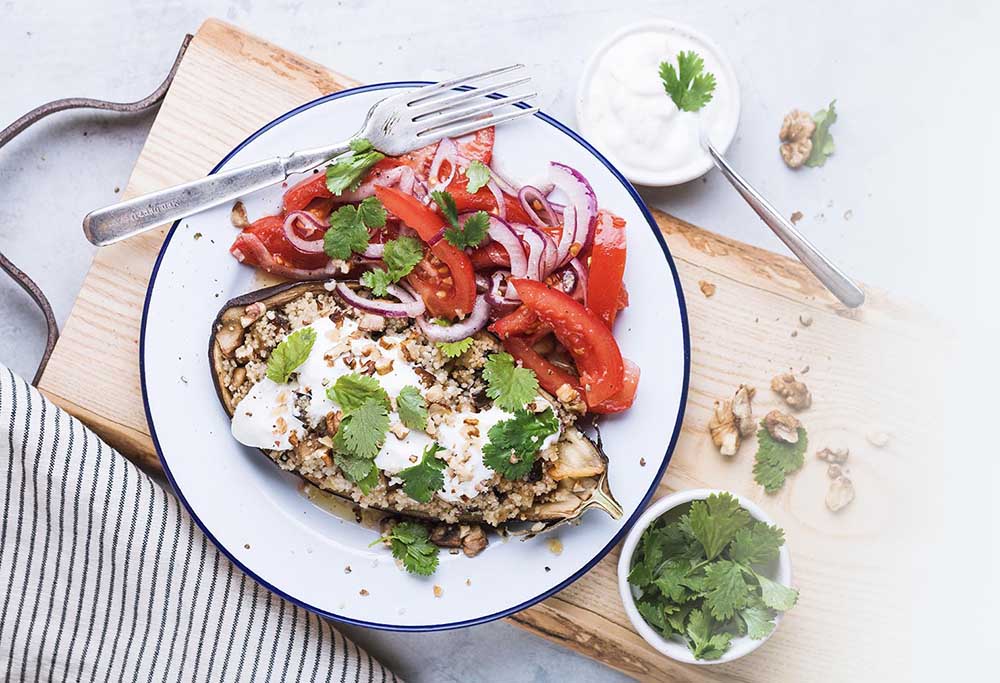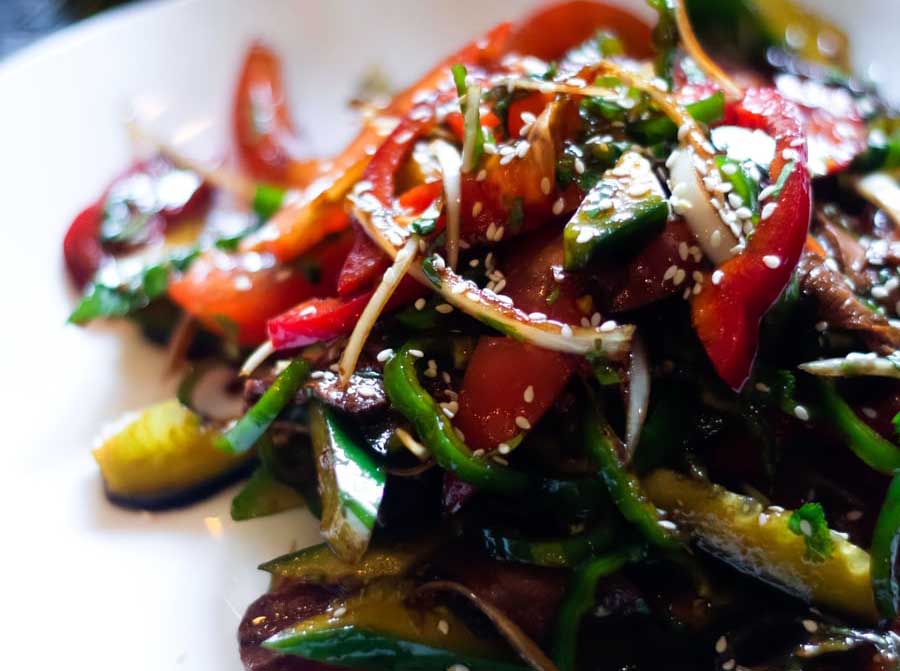If you’re trying to lose weight or keep it off, you might be looking for foods that boost your metabolism. Certain foods can help slightly increase your metabolic rate. This is the number of calories burned by your body.
If losing body fat or preventing excess weight gain is your goal, including these foods in your diet may help.
However, eating more of these foods does not guarantee weight loss. Instead, they supplement a well-balanced, moderately calorie-restricted diet to aid in weight loss.
11 Best Foods to Increase Metabolism that may help you burn more calories:
1. Foods high in protein
Protein-rich foods, such as meat, fish, eggs, dairy, legumes, nuts, and seeds, could boost your metabolism for some hours.
This is because they require more energy from your body to digest.
According to research, protein-rich foods boost TEF the most. They boost your metabolic rate by 15-30%, compared to 5-10% for carbs and 0-3% for fats.
Protein-rich diets also help your body retain muscle mass, which reduces the drop in metabolism that is common during weight loss.
Furthermore, protein may help you feel fuller for longer, which can help you avoid overeating.
2. Foods high in minerals
Iron and selenium are minerals that play distinct but equally important roles in the proper functioning of your body.
They do, however, share one feature. They’re both required for the thyroid gland, which regulates your metabolism, to function properly.
According to research, a diet deficient in iron or selenium may impair your thyroid’s ability to produce adequate amounts of hormones, potentially slowing your metabolism.
To help your thyroid function to the best of its ability, include selenium- and iron-rich foods like meat, seafood, legumes, nuts, and seeds in your daily menu.
3. Chile peppers
Capsaicin, a chemical found in chili peppers, may improve your metabolism by increasing the rate at which your body burns calories slightly.
According to a review of 20 research studies, capsaicin — whether from supplements or the peppers themselves — may help your body burn up to 50 extra calories per day.
Some studies have found that doses as low as 9-10 mg per day provide comparable benefits. This is the same as one jalapeno pepper.
Capsaicin may also have appetite suppressant properties.
Consuming at least 2 mg of capsaicin directly before each meal appears to reduce calorie consumption, particularly from carbs, according to a review of nearly 200 studies.
Similarly, incorporating cayenne pepper into your meal may increase the amount of fat your body burns for energy, particularly after a high-fat meal. However, this fat-burning effect may only be observed in people who are not used to eating spicy foods.
However, research on capsaicin’s metabolism-boosting abilities is conflicting.
4. Coffee and Tea
Caffeine in coffee may aid in increasing metabolic rate.
Several studies have found that people who consume at least 270 mg of caffeine per day, or about 3 cups of coffee, burn up to 100 calories more per day.
Caffeine may also help your body burn fat for energy, and it appears to be especially effective at improving workout performance.
However, the effects vary from person to person, depending on factors such as body weight and age.
Tea contains health-boosting compounds called catechins (some natural antioxidants) that may work in tandem with caffeine to boost the metabolic rate.
Both oolong and matcha green tea, in particular, may increase fat oxidation and help you burn extra calories when combined with an exercise regimen.
Furthermore, oolong and green teas may assist your body in more effectively using stored fat for energy, increasing your fat-burning ability by up to 17%.
However, as with coffee, the effects may vary from person to person.
5. Legumes and beans
Lentils, peas, chickpeas, black beans, and peanuts are particularly high in protein when compared to other plant foods.
According to research, their high protein content requires your body to burn more calories to digest them than lower-protein foods.
Legumes also contain dietary fiber, which your body can use as a prebiotic to feed the good bacteria in your large intestine.
In turn, these beneficial bacteria produce short-chain fatty acids. Acids may help your body use stored fat as energy more effectively, and maintain normal blood sugar levels.
7. Ginger and related spices
Ginger and related spices are thought to have special metabolism-boosting properties.
According to one study, mixing 2 grams of ginger powder into hot water and drinking it with a meal can help you burn up to 43 more calories than drinking hot water alone.
This hot ginger drink may also reduce hunger and increase feelings of satiety (fullness).
Grains of paradise, another ginger family spice, may have similar effects.
In a study of 19 healthy males, participants who received a 40 mg extract of grains of paradise burned 43 more calories in the following 2 hours than those who received a placebo.
However, researchers noted that some of the participants were non-responders, so the effects may differ from person to person.
8. Cacao
Cacao and cocoa are delicious treats that may also help your metabolism.
For example, mice studies have found that cocoa and cocoa extracts may promote the expression of genes that promote fat burning. This seems to be particularly true in mice fed high fat or high calorie diets.
One study suggests that cocoa may inhibit the action of enzymes required to break down fat and carbs during digestion, preventing the body from absorbing them and the calories they provide.
Human studies on the effects of cocoa or cacao products such as dark chocolate, on the other hand, are uncommon. More research is required before firm conclusions can be drawn.
If you want to try cacao, go for the raw varieties. Processing depletes beneficial compounds while also adding sugar and calories.
9. Apple cider vinegar
Apple cider vinegar has been shown to boost metabolism.
Animal studies have shown that vinegar is especially effective at increasing the amount of fat burned for energy.
Similarly, apple cider vinegar is frequently claimed to increase metabolism in humans, but few studies have looked into this directly.
It may aid in weight loss by slowing stomach emptying and increasing feelings of fullness.
If you do decide to take it, limit yourself to 1-2 tablespoons per day and dilute it in at least 1 cup of water per tablespoon of vinegar to avoid tooth erosion, damage to the lining of your digestive tract, and other potential side effects.
10. MCT (Medium Chain Triglyceride) Oil
MCT oil is a distinct type of fat that may have metabolic benefits. The majority of fats in foods are long-chain triglycerides, but MCT oil is made up of medium-chain triglycerides.
MCT oil consumption has been shown in some studies to increase metabolic rate in humans. Furthermore, unlike long-chain fats, MCTs are absorbed directly by the liver and converted into energy. As a result, they are less likely to be stored as body fat.
MCT oil is typically consumed as a supplement, but it can also be added to foods such as soups or smoothies. However, it is not suitable for cooking.
11. Seaweed
Seaweed is high in iodine, a mineral necessary for thyroid hormone production and thyroid gland function.
Thyroid hormones serve a number of purposes, one of which is to regulate your metabolic rate.
Consuming seaweed on a regular basis can help you meet your iodine requirements while also maintaining your metabolic health.
What’s more, fucoxanthin is another seaweed-based compound — primarily found in brown seaweeds — that may increase your metabolic rate.
And last but not least: Water
We need water to burn calories. Furthermore, some studies show that drinking water may also briefly boost metabolism by 24–30%.
Researchers note that about 40% of that increase is explained by the additional calories needed to heat the water to body temperature — known as water induced thermogenesis.
However, the effects only appear to last for 40–90 minutes after drinking water, and the strength of the effect may vary from person to person.
Certain foods may help you burn more calories by slightly increasing your metabolic rate. As a result, eating them on a regular basis may help you lose weight and keep it off in the long run.
These foods, however, will not compensate for a high-calorie or low-quality diet. Seek a gradual reduction in calories. Eat mostly whole, minimally processed foods for effective, long-term weight loss and maintenance.
Find your favourite weight loss smoothie recipes here.






